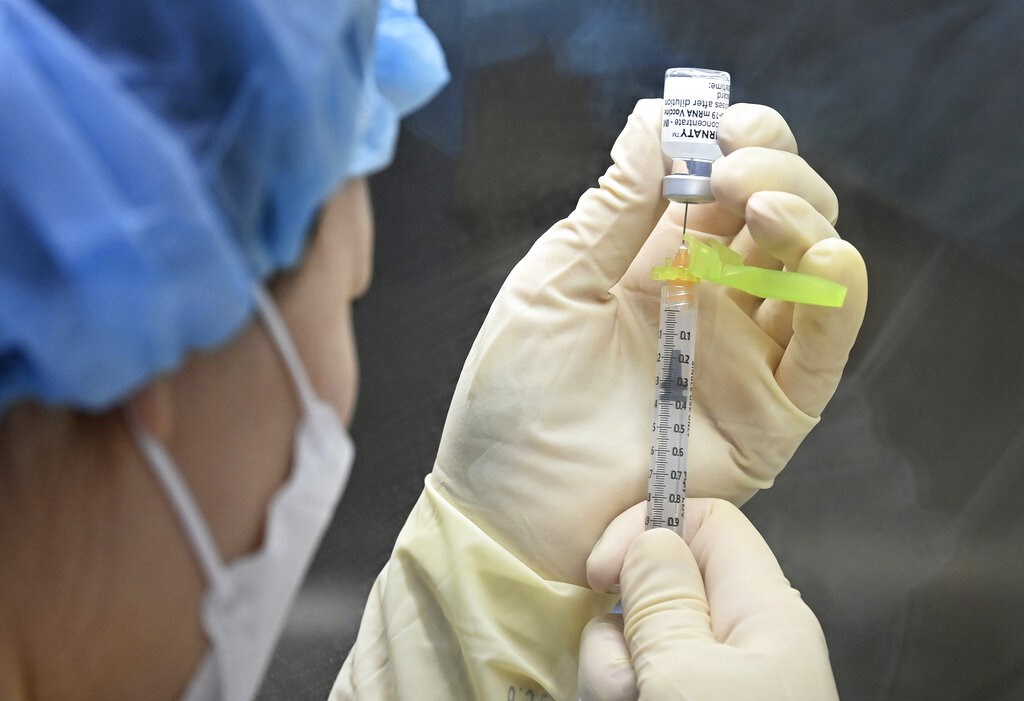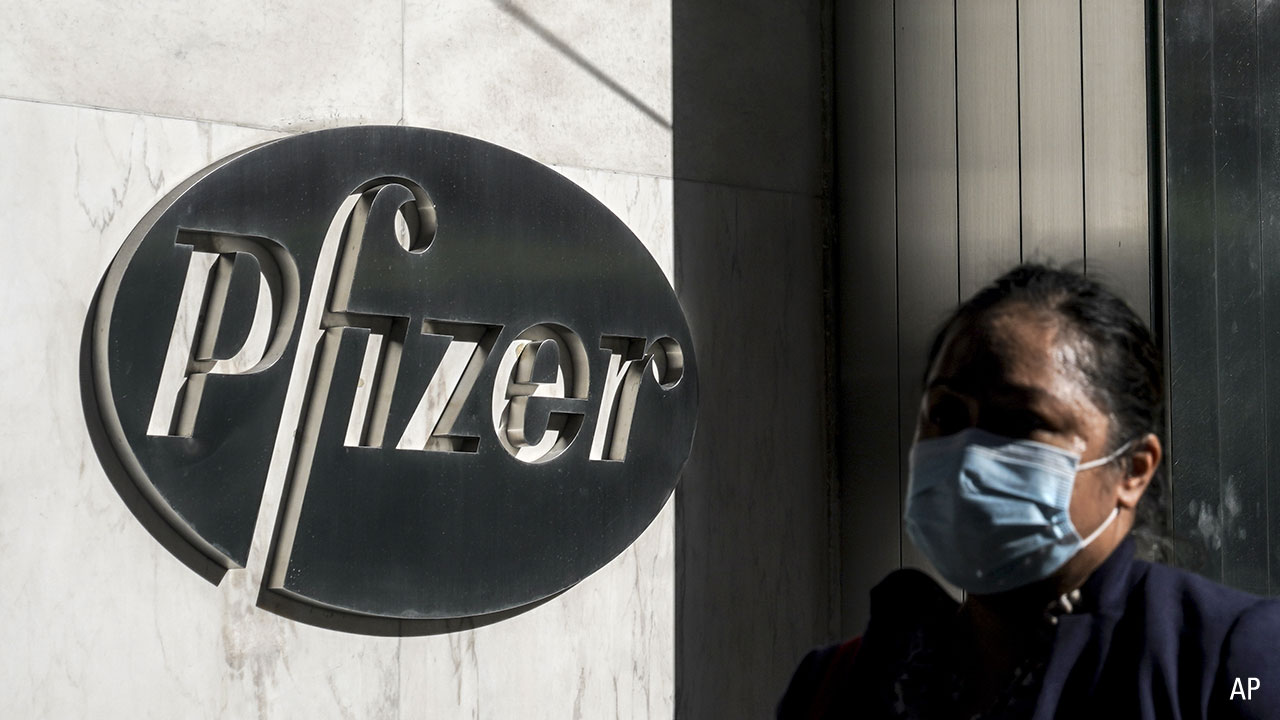
Governments around the world are aggressively inoculating their populations to contain the spread of the coronavirus and jumpstart their economies. And this means big orders for vaccine makers.
It’s a no-brainer that one of the biggest beneficiaries of mass vaccinations are the healthcare firms that are making and supplying COVID-19 vaccines, a market Morningstar forecasts could reach US$67 billion in 2021, followed by US$61 billion in 2022, and US$8 billion annually starting in 2023.
Both developed and developing nations are clamouring for large quantities of vaccines, pushing healthcare firms to ramp up production. Governments’ multi-year contracts, including the Government of Canada, for these vaccines provide long-term demand visibility for the producers. The multi-billion-dollar deals struck with vaccine makers help countries secure access to millions of vaccines each year until 2023, and potentially for 2024.
This provides a visible and long growth runway for leading vaccine suppliers. As the global fight against the virus continues, the following healthcare companies are well placed to enjoy a large revenue bump, in addition to the multiple streams of existing revenue generated from a rich portfolio of life-saving drugs.
| Moderna Inc | ||
| Ticker | MRNA | |
| Current yield: | - | |
| Forward P/E: | 8.06 | |
| Price | US$159.32 | |
| Fair value: | US$117 | |
| Value | 39% Premium | |
| Moat | None | |
| Moat Trend | Positive | |
| Star rating | ** | |
| Data as of May 06, 2021 | ||
Biotech behemoth Moderna (MRNA) is one of the leading providers of the coronavirus vaccine. The firm's mRNA technology was promptly validated with its COVID-19 vaccine, which was authorized in the U.S. in December 2020.
Moderna created, developed, manufactured, and got regulatory authorization for two-dose nRNA COVID-19 vaccine in record time. This was one of the first two mRNA vaccines ever authorized, apart from Pfizer/BioNTech's vaccine, says a Morningstar equity report.
The pandemic accelerated Moderna's evolution into a commercial-stage biotech. The firm's ramp-up in manufacturing and clinical know-how will pave the way for faster timelines for additional programs, the report says.
Morningstar projects the firm could report nearly US$19 billion in COVID-19 vaccine sales in 2021, followed by US$17 billion in sales in 2022 “as pandemic-related demand begins to decline but demand for boosters expands,” says Morningstar sector strategist, Karen Andersen, who pegs the stock’s fair value at US$117.
There’s potential for sustained revenue in the low-single-digit billions annually if higher-risk populations continue to receive annual vaccines past the pandemic, she adds.
Moreover, both Moderna and Pfizer are negotiating new contracts beyond 2021 and remain best positioned to develop the first vaccines against new variants. “Moderna has released the first data for a third dose with its mRNA-1273.351 variant vaccine that implies stronger and more consistent protection across variants,” says Andersen.
| Pfizer Inc | |
| Ticker | PFE |
| Current yield: | 3.9% |
| Forward P/E: | 12.24 |
| Price | US$39.05 |
| Fair value: | US$40 |
| Value | Fairly valued |
| Moat | Wide |
| Moat Trend | Stable |
| Star rating | *** |
| Data as of May 06, 2021 | |
U.S. healthcare heavyweight, Pfizer (PFE) is the leading maker and supplier of the mRNA Covid-19 vaccine. While Pfizer’s product portfolio includes many types of healthcare products and chemicals, of late, prescription drugs and vaccines account for the majority of US$50 billion sales. The firm, which also sells therapies for cancer, pneumococcal and cardiovascular diseases, generates 50% of its total sales internationally, primarily from emerging markets.
Pfizer has seen a robust uptake in its mRNA Covid-19 vaccines, which are being preferred over other alternatives in many countries pushing to inoculate their populations. As a result, the drugmaker has secured multi-year deals worth millions of dollars from multiple countries as they scramble to contain the spread of coronavirus and kickstart their economic rebound.
After incorporating updates from Moderna and Pfizer with first-quarter earnings, Morningstar recently raised its forecast for COVID-19 vaccine sales to US$70 billion in 2021 (from US$67 billion as of April 22).
Pfizer is negotiating new contracts while racing to develop vaccines against new variants. “The company's large size confers significant competitive advantages in developing new drugs,” says Andersen, who puts the stock’s fair value at US$40.
In fact, Pfizer expects data from its variant vaccine as early as July. The wide-moat company claims that future variant vaccine updates may only need a lead time until regulatory authorization of roughly 100 days.
| AstraZeneca PLC ADR | |
| Ticker | AZN |
| Current yield: | 2.61% |
| Forward P/E: | 21.46 |
| Price | US$53.21 |
| Fair value: | US$55 |
| Value | Fairly valued |
| Moat | Wide |
| Moat Trend | Stable |
| Star rating | *** |
| Data as of May 06, 2021 | |
British drugmaker AstraZeneca (AZN) sells branded drugs across several major therapeutic classes, including gastrointestinal, diabetes, cardiovascular, respiratory, cancer, and immunology. While international markets account for the bulk of its sales, the U.S. represents close to one-third of it.
AstraZeneca is at the leading front of the global war to contain the rampaging pandemic. The firm’s Covid-19 vaccine was one of the first to get approved in several countries. As a result, the company reported solid first-quarter results blowing past all estimates. Boosted by Covid-19 vaccine sales, the company clocked an 11% jump in total sales for the quarter.
AstraZeneca’s coronavirus vaccine is being used across the world, except in some countries, including the U.S., where its use has not been authorized. “We expect Astra will submit the Covid-19 vaccine to U.S. and Japanese regulatory groups later this quarter,” says a Morningstar equity report.
The healthcare major boasts a leading presence in the pharma and biotech industry on patent-protected drugs and a developing pipeline, regarded as one of the strongest in the industry. “The replenishment of new drugs is offsetting the past patent losses on its gastrointestinal drug,” which positions the company for steady growth, says Morningstar sector director, Damien Conover, who puts the stock’s fair value at US$55.
The drugmaker’s wide economic moat, or sustainable competitive advantage, is underpinned by patents, economies of scale, and a powerful distribution network, adds Conover.
| BioNTech SE ADR | |
| Ticker | BNTX |
| Current yield: | - |
| Forward P/E: | 18.66 |
| Price | US$167.59 |
| Fair value: | US$124 |
| Value | 38% Premium |
| Moat | Wide |
| Moat Trend | Stable |
| Star rating | ** |
| Data as of May 06, 2021 | |
German biotech giant BioNTech (BNTX) focuses on developing cancer therapeutics, as well as vaccines for infectious diseases, including its nRNA-based Covid-19 vaccine, Comirnaty.
The emerging biotech has a burgeoning vaccine pipeline for infectious diseases. It is developing vaccines for HIV and tuberculosis in partnership with the Bill & Melinda Gates Foundation, while the ongoing Covid-19 program is in partnership with Pfizer. “The Covid-19 vaccine, Comirnaty, quickly progressed through human trials, culminating in authorization in the U.S. and Europe in December 2020,” says a Morningstar equity report, noting that the vaccine's excellent efficacy, strong supply, and early market leadership “all support US$24 billion in Comirnaty sales annually in 2021 and 2022 (and roughly 50% of gross profits flowing to BioNTech).”
BioNTech has become a key player in the development of personalized mRNA cancer treatments. Its early-stage pipeline and mRNA technology platforms have generated interest among several large pharmaceutical companies, resulting in collaborations and partnerships.
“BioNTech has a very full but early pipeline, with over 22 known drug candidates and several more not yet disclosed,” says Andersen, who recently increased the stock’s fair value from US$76 to US$124 per ADR, prompted by improved near-term sales estimates for its Covid-19 vaccine.























